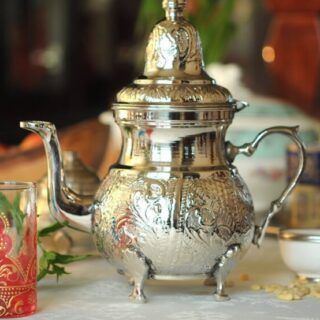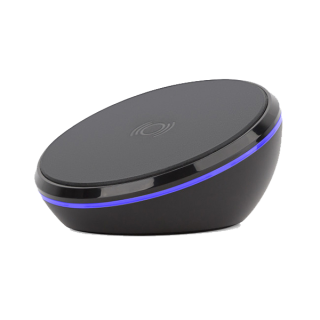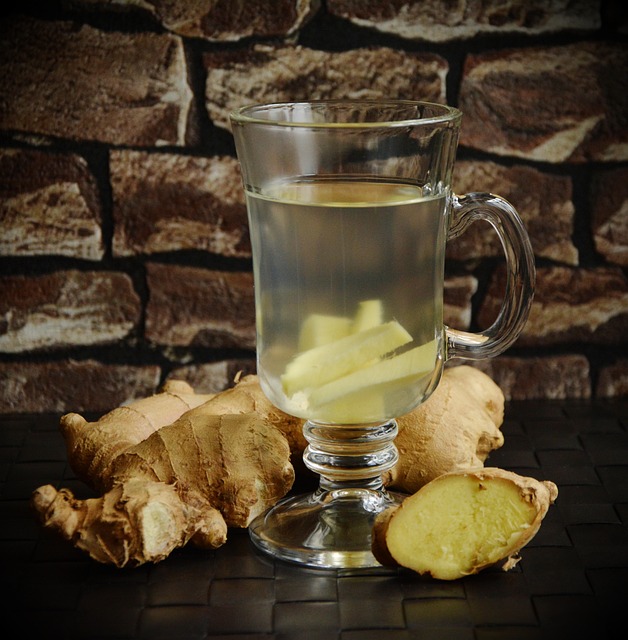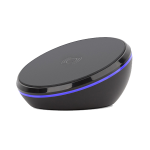Category
Our Best Sellers
-
 Cras viverra rhoncus
Rated 5.00 out of 584.00$
Cras viverra rhoncus
Rated 5.00 out of 584.00$ -
 Suspendisse volutpat massa
Rated 4.00 out of 539.00$
Suspendisse volutpat massa
Rated 4.00 out of 539.00$ -
 In fringilla felis non nulla porta rutrum
Rated 3.00 out of 5
In fringilla felis non nulla porta rutrum
Rated 3.00 out of 578.00$Original price was: 78.00$.65.00$Current price is: 65.00$. -
 Aliquam erat volutpat
Rated 2.00 out of 550.00$
Aliquam erat volutpat
Rated 2.00 out of 550.00$ -
 Suspendisse gravida lacus varius
Rated 1.00 out of 5
Suspendisse gravida lacus varius
Rated 1.00 out of 533.00$Original price was: 33.00$.22.00$Current price is: 22.00$. -
 Théière marocaine artisanale en argent
120.00$
Théière marocaine artisanale en argent
120.00$
-
 Cendrier Authentique et Décoratif
30.00$
Cendrier Authentique et Décoratif
30.00$
-
 Suspendisse vehicula at dui
56.00$
Suspendisse vehicula at dui
56.00$
-
 Aenean non pellentesque mauris
Aenean non pellentesque mauris
68.00$Original price was: 68.00$.55.00$Current price is: 55.00$. -
 Nulla feugiat felis tempor sem
61.00$
Nulla feugiat felis tempor sem
61.00$
Popular
-
 Théière marocaine artisanale en argent
120.00$
Théière marocaine artisanale en argent
120.00$
-
 Cendrier Authentique et Décoratif
30.00$
Cendrier Authentique et Décoratif
30.00$
-
 Aliquam erat volutpat
Rated 2.00 out of 550.00$
Aliquam erat volutpat
Rated 2.00 out of 550.00$ -
 Cras viverra rhoncus
Rated 5.00 out of 584.00$
Cras viverra rhoncus
Rated 5.00 out of 584.00$ -
 Suspendisse volutpat massa
Rated 4.00 out of 539.00$
Suspendisse volutpat massa
Rated 4.00 out of 539.00$


Introduction
Ginger (Zingiber officinale) is a flowering plant that originated in Southeast Asia, known for its aromatic rhizome, which is widely used as a spice and medicinal herb. With a long history of culinary and medicinal use, ginger is celebrated for its unique flavor, health benefits, and therapeutic properties. This article explores the nutritional composition, health benefits, culinary uses, and storage methods of ginger, along with scientific research supporting its health claims.
1. Nutritional Composition of Ginger
Ginger is low in calories and contains a variety of bioactive compounds. A typical serving of fresh ginger (about 5 grams) contains the following:
- Calories: 4
- Carbohydrates: 1 gram
- Dietary Fiber: 0.1 grams
- Sugars: 0 grams
- Protein: 0.1 grams
- Fat: 0.1 grams
- Vitamin C: 0.1 mg (negligible)
- Potassium: 13 mg
- Gingerol: The main bioactive compound, responsible for many of ginger’s medicinal properties.
2. Health Benefits of Ginger
2.1. Anti-Inflammatory Effects
Ginger is well-known for its anti-inflammatory properties, primarily due to its high content of gingerol, a potent antioxidant. Chronic inflammation is linked to various health conditions, including heart disease, cancer, and arthritis. Regular consumption of ginger may help reduce inflammation and alleviate symptoms associated with these diseases.
2.2. Digestive Health
Ginger has been traditionally used to aid digestion. It can stimulate saliva, bile, and gastric enzymes, promoting efficient digestion and nutrient absorption. Ginger is also effective in relieving nausea, particularly in cases of morning sickness during pregnancy, motion sickness, and chemotherapy-induced nausea. Studies have shown that ginger can significantly reduce the severity and duration of nausea.
2.3. Pain Relief
Several studies suggest that ginger may help reduce muscle pain and soreness. Its anti-inflammatory properties can alleviate discomfort associated with exercise-induced muscle damage. Additionally, ginger has been shown to be effective in reducing menstrual pain, with some studies indicating that it may be as effective as nonsteroidal anti-inflammatory drugs (NSAIDs) for menstrual cramps.
2.4. Heart Health
Ginger may contribute to heart health by improving cholesterol levels and blood circulation. Research has indicated that ginger can help lower levels of LDL (bad) cholesterol and triglycerides while increasing HDL (good) cholesterol. Its ability to reduce blood pressure and improve circulation may further reduce the risk of heart disease.
2.5. Antioxidant Properties
Ginger is rich in antioxidants, which help combat oxidative stress in the body. Oxidative stress is linked to numerous chronic diseases and aging. Regular consumption of ginger can enhance the body’s antioxidant defenses, potentially reducing the risk of chronic diseases and promoting overall health.
3. Ginger in Traditional Medicine
Ginger has been used for centuries in traditional medicine practices around the world. Some common uses include:
- Respiratory Health: Ginger is often used in herbal remedies to relieve coughs and colds due to its warming properties and ability to promote sweating.
- Anti-Nausea: Traditional herbal medicine often employs ginger for its anti-nausea effects, particularly for pregnancy-related nausea and seasickness.
4. Culinary Uses of Ginger
Ginger is a versatile ingredient used in various cuisines. Its distinct flavor adds warmth and spice to dishes. Common culinary uses include:
- Fresh: Fresh ginger can be grated or sliced and used in stir-fries, soups, and marinades.
- Dried: Ground ginger is commonly used in baking, particularly in gingerbread, cookies, and cakes.
- Teas: Ginger tea is a popular beverage, often consumed for its soothing properties.
- Pickled: Pickled ginger is a common accompaniment to sushi and other Asian dishes.
5. Choosing and Storing Ginger
5.1. Choosing Ginger
When selecting ginger, look for firm, plump rhizomes with smooth skin. Avoid ginger that is wrinkled or has soft spots, as these may indicate spoilage. Fresh ginger should have a strong, spicy aroma.
5.2. Storing Ginger
Fresh ginger can be stored in the refrigerator for several weeks. It can also be frozen for longer storage. To freeze ginger, peel and slice it, then place it in an airtight container. Dried ginger should be kept in a cool, dark place in a sealed container to maintain its potency.
6. Tips for Incorporating Ginger into Your Diet
- Smoothies: Add fresh ginger to smoothies for a spicy kick and added health benefits.
- Cooking: Use ginger in stir-fries, soups, and marinades to enhance flavor and nutrition.
- Baking: Incorporate ground ginger into baked goods for a warm, spicy flavor.
7. Research and Studies
Numerous studies have highlighted the health benefits of ginger. Research published in the \”Journal of Pain\” indicated that ginger supplementation reduced muscle pain after exercise. Another study in \”The American Journal of Obstetrics and Gynecology\” found that ginger was effective in reducing nausea and vomiting in pregnant women. Additionally, ginger\’s potential effects on cholesterol and blood pressure have been supported by various clinical studies.
8. Cautions and Considerations
While ginger is generally safe for most people, it may interact with certain medications, including blood thinners and medications for diabetes. Individuals with gallstones or those undergoing surgery should consult with a healthcare professional before significantly increasing their ginger intake. Additionally, excessive consumption of ginger can lead to digestive discomfort in some individuals.
Conclusion
Ginger is a nutrient-rich root with a wide range of health benefits, from supporting digestive health to reducing inflammation and pain. Its versatility in cooking and traditional medicinal uses make it a valuable addition to any diet. By incorporating ginger into your meals and beverages, you can enjoy its unique flavor while benefiting from its numerous health advantages.
Written by hicham
Best offers
Join Risk Free
30 days refund
100% Safe
Secure Shopping
24x7 Support
Online 24 hours
Best Offers
Grab Now
Shipping worldwide
Delivery to all countries of the world.
Know Us

Neque viverra justo nec ultrices dui sapien eget. Gravida cum sociis natoque penatibus. Imperdiet proin fermentum leo vel orci porta non
Read MoreStore Updates



Product Showcase







